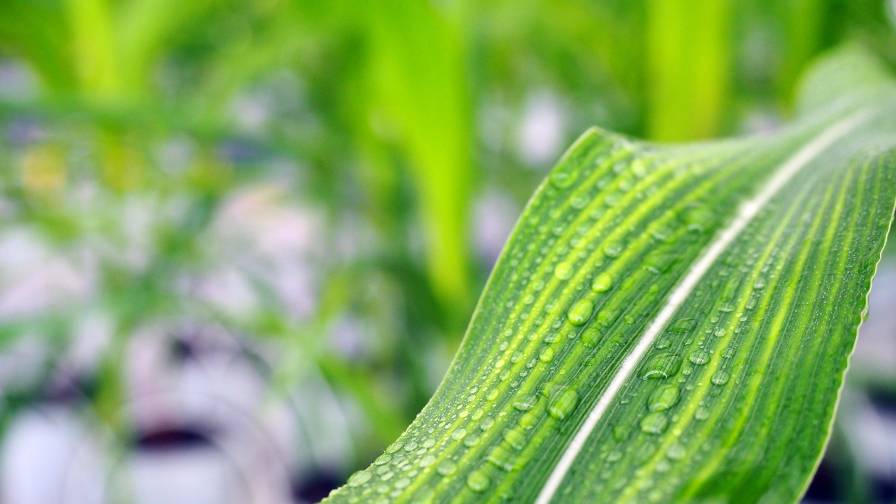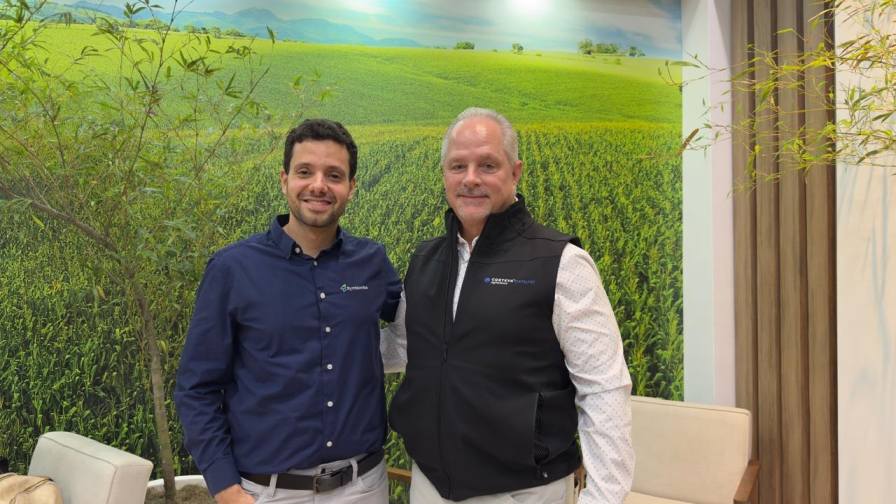Are Biologicals Poised for Significant Growth in the Row Crop Markets of North America and the EU?
Editor’s note: Each year, 2BMonthly’s State of the Industry feature includes a Q&A with executives from leading biocontrol and biostimulants companies worldwide. The 2023 feature touched on a wide range of prevailing topics including the biologicals M&A climate, critical success factors for scaling biologicals companies, and the ongoing challenges facing biocontrol registrations in the EU. In the excerpt below, experts offered their insight on whether the row crop markets of North America and the EU will see greater adoption in biologicals in the upcoming years.
Q: We have observed biologicals making big gains in row crops in Brazil. In your view, what will it take to see a similar trend in North America and EU?
Peter Maes, Chief Strategy Officer, Koppert: Unlocking the potential for biologicals in the row crop markets of North America and the EU is an exciting prospect for us. While these regions might experience comparatively lower pest pressures due to their temperate climates, the fundamental principle remains unchanged: fostering grower trust by showcasing the consistent value our solutions bring to their businesses.
Similar to the successful trend observed in Brazil, the shift toward greater adoption of biologicals hinges on our ability to integrate seamlessly within existing crop protection practices. It’s about crafting an integrated system that maximizes value and addresses the immediate needs of growers in these regions.
In North America and the EU, our strategy revolves around demonstrating the tangible benefits of biological solutions within the framework of current crop protection methodologies. We understand the importance of respecting and working within established systems while introducing innovations that complement and enhance these practices. Our focus remains on collaborating closely with growers, listening to their needs, and providing solutions that align with their operations.
Frederic Beudot, Director & Global Portfolio Leader – Biologicals, Corteva Agriscience: Biologicals are very sensitive to local conditions with unique crops, soil types, and climate conditions. The conditions in Brazil are unique, just as the conditions are unique in North America and Europe. Regionally tailored solutions can improve the value of farmers’ biologicals investments.
Vittorio Veronelli, CEO, CBC Europe: One of the main issues with biologicals is that often they achieve best efficiency in area-wide programs which are easier to be implemented in territories where crops are grown on large areas by a single organization (not necessarily a single grower). In row crops this should also be possible in North America and EU, but the biocontrol industry needs to focus on these markets to develop more suitable solutions as fields and crops conditions are different.
Salman Mir, Chief Operating Officer, Valent Biosciences: Brazilian growers have driven the trend toward biologicals in row crops in Latin America. We anticipate accelerated growth in both the North American and EU markets over the coming years as awareness levels increase, the available biological solutions become more effective, demand for sustainable products continues, and as growers continue to face challenges in the market. We further anticipate growth in these markets to be driven by growers’ willingness to evaluate complementary rotations of biological products in their traditionally conventional systems. The rise of biostimulants, nutrient use efficiency, and nitrogen-fixing product offerings will also continue to drive market adoption as the price and availability of fertilizers continues to fluctuate widely.
Frederic Chagnon, President & General Manager, Lallemand: Brazil has benefited from the fact that much farmland has been developed by growers seeking a better life, moving from states like Rio Grande do Sul to Minas Gerais, Mato Grosso, etc. This pioneering mentality, combined with strong support from local universities and institutions such as EMBRAPA, has helped make Brazil one of the most forward-looking countries in agriculture. Our industry must promote exchanges to help growers from other parts of the world witness first-hand the value of biological products in agriculture.
Pam Marrone, Co-founder & Executive Chair, Invasive Species Control Corporation: The U.S. Environmental Protection Agency needs to appropriately staff the BPPD based on the ever-increasing number of AIs submitted to the agency. The slow speed of approval is dragging down the market growth. The EU needs to finally streamline their regulations to accelerate approvals of biologicals. In the U.S., there needs to be further education and awareness of biologicals and how to use them based on their unique modes of action, not only for growers but also for university researchers and extension specialists. More trials in realistic, on-farm situations and going beyond reliance on small plot standalone comparisons with chemicals are needed.
Bénédicte Flambard, Vice President, FMC: In recent years, Brazil has witnessed a shift in its agricultural practices, marked by a notable increase in the adoption of biological crop protection in row crops. The regulatory approval process for biologicals is decreased in Brazil. This is an essential factor impacting farmers’ access to advanced biological technology. Increased adoption is due to Brazilian farmers seeing value in diversifying their pest management practices and integrating biological solutions with synthetics and precision ag technologies.
While the regulatory process for biological crop protection in North America is generally favorable, and the adoption of biologicals is steadily growing, challenges persist. Farmers may face a learning curve as they transition from traditional synthetic methods to more complex biological approaches. The impetus should be to engage with farmers to provide them with more effective ways to measure biological performance and educate them on using biologicals in an integrated pest management program. FMC’s focus on customer-centricity is essential to changing the perception of biologicals in North America and increasing their use in row crops.
While we see significant opportunities for biological crop protection in the EU, the regulatory approval process must be addressed, especially for biocontrols. Providing farmers access to innovative biological products is crucial to foster adoption. Recognizing the importance of sustainable agriculture, the EU has taken significant strides to regulate the use of biostimulants, and growers are increasingly recognizing the long-term benefits of incorporating biostimulants into their crop management practices. As the regulatory process eases, a similar pattern is expected to occur with biopesticides.
Amy O’Shea, President & CEO, Certis Biologicals: The recognized and increasing need for resistance management solutions resulting from the widespread use of conventional pesticides, paired with favorable regulatory structural changes and cooperation of governmental bodies, has been a catalyst of biopesticide adoption in Brazil.
In North America, we have seen substantial progress in the biologicals market with established pathways for the market entry of new biological products and continuous refinement of product development and manufacturing processes that allow for more cost-effective solutions and improved product features, like storage stability. Technological advancements in precision agriculture and education initiatives aimed at growers and agricultural industry retailers will also help make additional progress.
In the EU, in addition to the industry advancements and mindset changes mentioned above, streamlining the regulatory process will continue to impact the availability and marketing of these products. The EU has taken steps in the right direction, but the current timelines and complexity of the authorization procedures are still hindering innovation to reach the market in a timely manner. Critical next steps will be defining biocontrol in EU legislation and establishing a separate track for the approvals and assessments of biological products. These roadblocks have been identified and we remain optimistic that we will see the move to row crops in the coming years.
View more expert insight on the state of the biologicals industry here.





